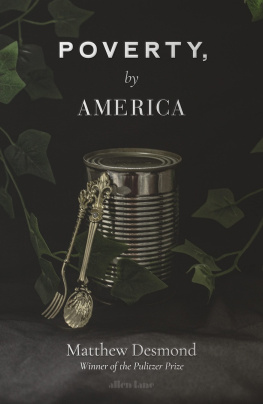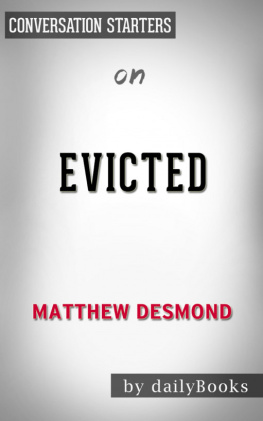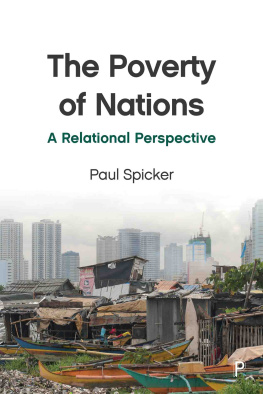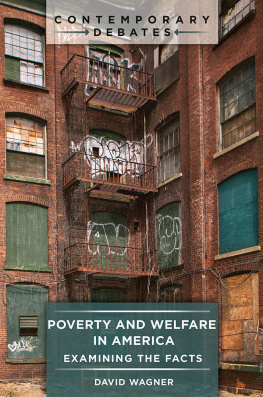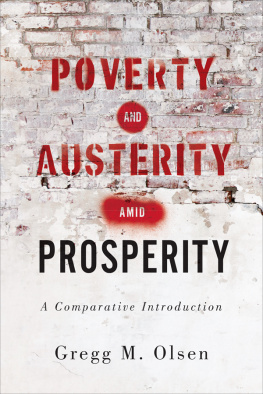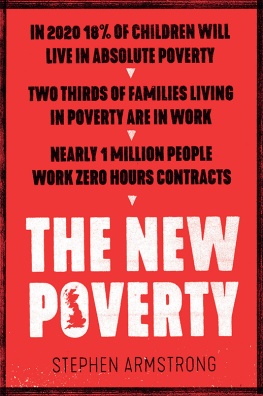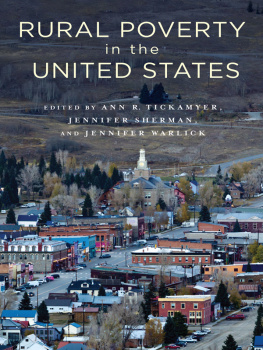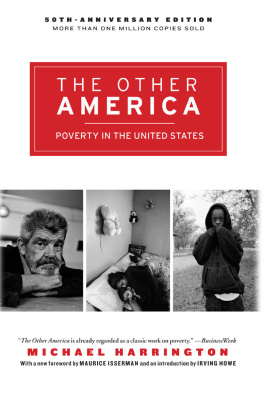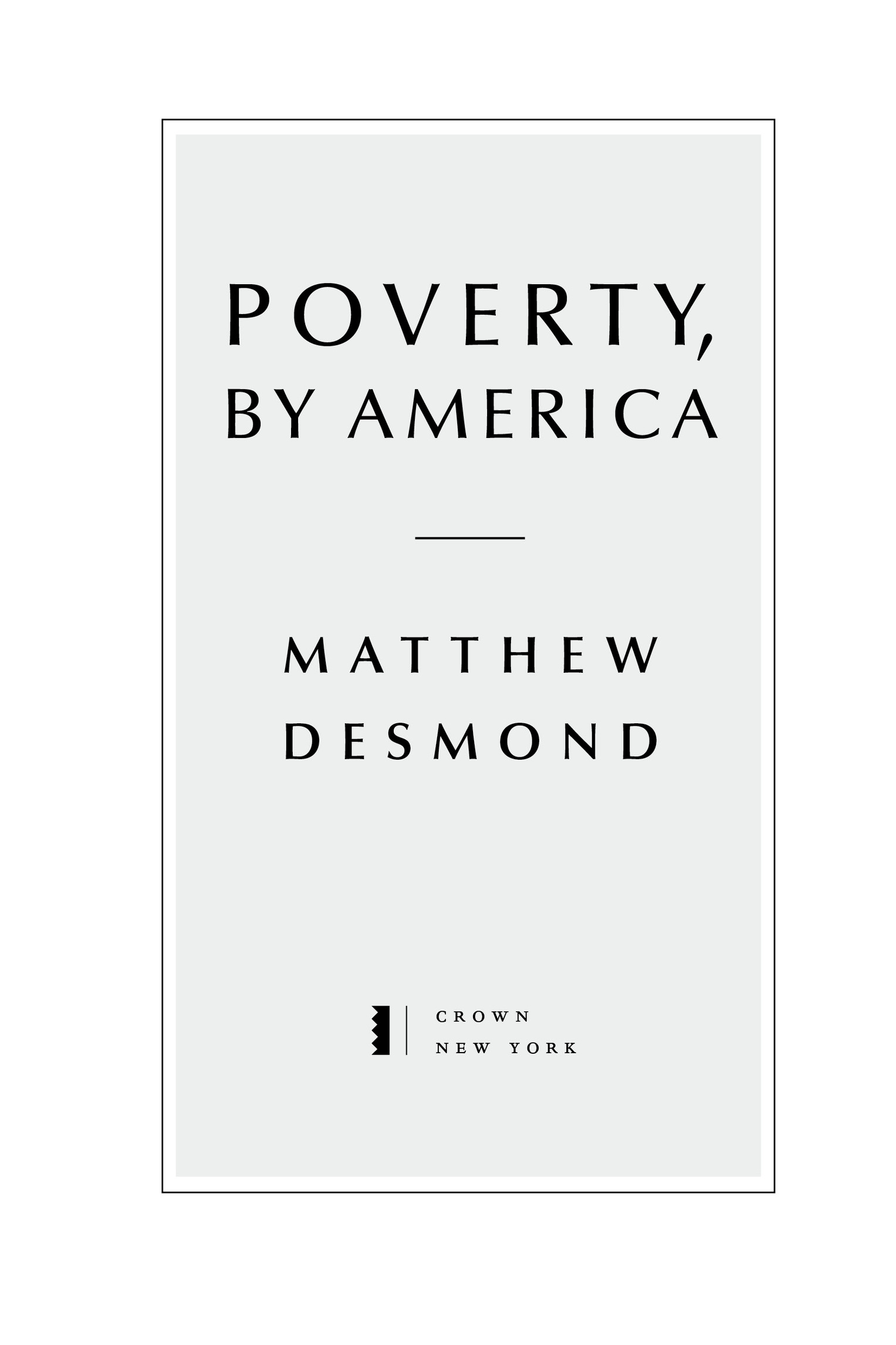Copyright 2023 by Matthew Desmond
All rights reserved.
Published in the United States by Crown, an imprint of Random House, a division of Penguin Random House LLC, New York.
Crown and the Crown colophon are registered trademarks of Penguin Random House LLC.
Portions of this work are excerpted from The New York Times Magazine (Matthew Desmond, House Rules, May 9, 2017; Matthew Desmond, Dollars on the Margins, February 23, 2019; Matthew Desmond, Why Work Doesnt Work Anymore, September 11, 2018; Matthew Desmond, The Tenants Who Evicted Their Landlord, October 13, 2020), The New York Times (Matthew Desmond, The Moratorium Saved Us. It Really Did, September 30, 2021), and American Journal of Sociology (Matthew Desmond and Nathan Wilmers, Do the Poor Pay More for Housing? Exploitation, Profit, and Risk in Rental Markets, 124 [2019]: 1090124).
Grateful acknowledgment is made to the Russell Sage Foundation for permission to reprint portions of Severe Deprivation in America: An Introduction, RSF: The Russell Sage Foundation Journal of the Social Sciences Volume 1, Issue 1. Matthew Desmond, ed. Russell Sage Foundation, 112 East 64th Street, New York, NY 10065, https://www.rsfjournal.org/content/1/1/1.
Library of Congress Cataloging-in-Publication Data
Names: Desmond, Matthew, author.
Title: Poverty, by America / Matthew Desmond.
Description: First edition. | New York: Crown, 2023 | Includes index.
Identifiers: LCCN 2022052347 (print) | LCCN 2022052348 (ebook) | ISBN 9780593239919 (hardcover) | ISBN 9780593239926 (ebook)
Subjects: LCSH: PovertyUnited States. | PovertyPrevention. | PoorUnited States.
Classification: LCC HC110.P6 D46 2023 (print) | LCC HC110.P6 (ebook) | DDC 362.50973dc23/eng/20230118
LC record available at https://lccn.loc.gov/2022052347
Ebook ISBN9780593239926
crownpublishing.com
Book design by Barbara M. Bachman, adapted for ebook
Cover design: Christopher Brand
ep_prh_6.0_143008041_c0_r3
Contents
_143008041_
We imagine that their sufferings are one thing and our life another.
Leo Tolstoy
PROLOGUE
W hy is there so much poverty in America? I wrote this book because I needed an answer to that question. For most of my adult life, I have researched and reported on poverty. I have lived in very poor neighborhoods, spent time with people living in poverty around the country, pored over statistical studies and government reports, listened to and learned from community organizers and union reps, drafted public policy, read up on the history of the welfare state and city planning and American racism, and taught courses on inequality at two universities. But even after all that, I still felt that I lacked a fundamental theory of the problem, a clear and convincing case as to why there is so much hardship in this land of abundance.
I began paying attention to poverty when I was a child. The home in which I grew up cost $60,000. It sat a couple of miles outside Winslow, Arizona, a small Route 66 town east of Flagstaff. It was small and wood paneled, surrounded by hard-packed dirt sprouting with thorny weeds. I loved it: the woodburning stove, the Russian olive trees. We had moved in after my father accepted a position as pastor of the First Christian Church. Scraping a salary from the offering plate never amounted to much, and Dad always griped that the railroad men in town got paid more than he did. He could read ancient Greek, but they had a union.
We learned to fix things ourselves or do without. When I put a hole through a window with my Red Ryder BB gun, it stayed broken. But a family friend and I once replaced the engine in my first truck, having found the right parts at a junkyard. After my father lost his job, the bank took our home, before it was all the rage, and we learned to do without that, too. Mostly I blamed Dad. But a part of me also wondered why this was our countrys answer when a family fell on hard times.
I went to college, enrolling at Arizona State University (ASU) by applying for every scholarship and loan I could. And I worked: as a morning-shift barista at Starbucks, a telemarketer, you name it. In the summers, I decamped to a forest near my hometown and served as a wildland firefighter. When classes were in session, I began hanging out with homeless people around my campusnot serving them at soup kitchens or delivering socks, but just sitting with them, talking. I think it helped me process, in my own adolescent way, what I was seeing all around me, which was money. So much money. Back in Winslow, some families were better off than others, but not like this. My classmates were driving BMWs and convertible Mustangs. For most of college, I didnt have a car, and when I did, it was a 1978 Ford F-150 with that junkyard engine and decent-sized holes in the floorboard, allowing me to see the road rip past as I drove. My classmates were going out for sushi. I stocked canned sardines and saltine crackers in my dorm room. The town of Tempe, the Phoenix suburb where ASUs main campus sits, had spent hundreds of millions of dollars to construct a two-mile-long artificial lake in the middle of the desert, a giant puddle that loses two-thirds of its water to evaporation each year. A few blocks away, people were begging on the street. How could there be, I wondered, such bald scarcity amid such waste and opulence?
I began stalking this question in the classroom, enrolling in courses that I hoped would help me make sense of my country and its confounding, unblushing inequality. I kept it up in graduate school at the University of Wisconsinthe only program that accepted my applicationwhere I focused on the housing crisis. To get as close as I could to that problem, I moved to Milwaukee, living in a mobile home park and then a rooming house. I befriended families who had been evicted, and I followed them for months and then years, sleeping on their floors, watching their children grow up, laughing and arguing with them, and, later, attending some of their funerals.
In Milwaukee, I met grandmothers living in trailers without heat. They spent the winter under blankets, praying that the space heaters didnt give out. I once saw an apartment full of kids, just kids, evicted on a rainy spring day. Their mother had died, and the children had chosen to go on living in the house until the sheriff came. In the years since, I have met poor Americans around the country striving for dignity and justiceor just plain survival, which can be hard enough: home health aides in New Jersey who belonged to the full-time working homeless, fast food workers in California fighting for a living wage, and undocumented immigrants in Minneapolis organizing for affordable housing, communicating with their neighbors through the Google Translate app.
This is who we are: the richest country on earth, with more poverty than any other advanced democracy. If Americas poor founded a country, that country would have a bigger population than Australia or Venezuela. Almost one in nine Americansincluding one in eight childrenlive in poverty. There are more than 38 million people living in the United States who cannot afford basic necessities, and more than 108 million getting by on $55,000 a year or less, many stuck in that space between poverty and security.
More than a million of our public schoolchildren are homeless, living in motels, cars, shelters, and abandoned buildings. After arriving in prison, many incarcerated Americans suddenly find that their health improves because the conditions they faced as free (but impoverished) citizens were worse. More than 2 million Americans dont have running water or a flushing toilet at home. West Virginians drink from polluted streams, while families on the Navajo Nation drive hours to fill water barrels. Tropical diseases long considered eradicated, like hookworm, have reemerged in rural Americas poorest communities, often the result of broken sanitation systems that expose children to raw sewage.

